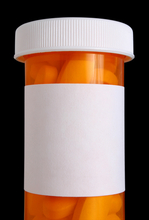The Equine Rotavirus Vaccine* from Pfizer Animal Health now has an updated appearance and packaging to reflect the current manufacturer. Originally produced by Fort Dodge Animal Health, the 2009 acquisition of Wyeth by Pfizer Inc. brought the Equine Rotavirus Vaccine to the Pfizer Animal Health vaccine portfolio. Equine Rotavirus Vaccine is conditionally licensed for the vaccination of pregnant mares to provide the passive transfer of antibodies to foals against equine rotavirus.

Good News for Foals
Rotavirus Vaccine provides transfer of antibodies from mare to foal against equine rotavirus
Equine rotavirus is a major infectious cause of foal diarrhea. The Equine Rotavirus Vaccine from Pfizer Animal Health is the only conditionally licensed vaccine available to help prevent rotavirus infections in foals and should be administered to pregnant mares in the eighth, ninth and tenth month of gestation.
The vaccination of mares increases the rotavirus antibody titers present in the mare’s milk which are transferred to the foal via colostrum to help reduce the incidence and severity of foal diarrhea due to rotaviral infection1. The Equine Rotavirus Vaccine has been used in mares since 1996 with no significant side effects.
“We are very happy to bring the Equine Rotavirus Vaccine under the Pfizer Animal Health brand,” said Andrea Wright, DVM, MVSc, Marketing Manager, Equine Biologicals for Pfizer Animal Health. “Pfizer Animal Health supports all of the vaccines in our portfolio with a strong history of innovation and research.”
Rotavirus is transmitted orally via direct contact with infected feces and damages the lining of the small intestine once ingested, resulting in diarrhea. Infected foals can shed the virus for up to ten days and should be isolated from other horses. Strict biosecurity measures should be enforced to help prevent the spread of the disease.
Rotavirus is rarely fatal, but in severe cases IV fluids, electrolytes and other nutritional supplements may be required to combat dehydration and mal-absorption of nutrients. After 60 days of age, maternal antibody titers in foals begin to drop and foals may be more susceptible to rotavirus infection. However, the severity of the disease is likely to be diminished compared with foals who become infected at 30 days of age or less1.
For more information on Equine Rotavirus vaccine, contact your Pfizer Animal Health representative or call 1-800-366-5288.
About Pfizer Animal Health
Pfizer Animal Health, a business unit of Pfizer Inc., is a world leader in the discovery, development and manufacture of innovative animal health vaccines, medicines, and diagnostic products. Pfizer Animal Health invests more in research and development than any other animal health company.
We work to assure a safe, sustainable global food supply from healthy beef and dairy cattle, swine, poultry and fish while helping dogs, cats and horses live healthier longer lives. We strive to be the animal health company that provides full healthcare solutions to veterinarians, livestock producers, and pet owners. To learn more, visit www.us.animalhealth.pfizer.com.
* This product is conditionally licensed while additional efficacy and potency data are being developed.
1.Rotaviral Diarrhea (2008). In American Association of Equine Practitioners website. Accessed Dec. 12, 2011 from http://www.aaep.org/rotaviral_diarrhea.htm
All brands are the property of their respective owners. ©2012 Pfizer Inc. All rights reserved
